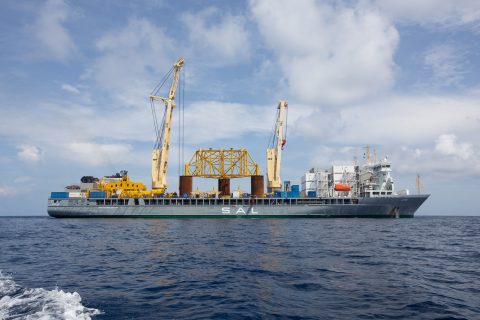
SAL Heavy Lift switches fleet to new hydrogen/methanol mix
SAL Heavy Lift’s fleet will soon be sailing with new hydrogen/methanol technology that will significantly lower fuel consumption and harmful emissions. By injecting a mix of hydrogen, oxygen, water and methanol into the air intake of the engines, the system ensures a much cleaner combustion process. The first vessel conversion is planned within the next three months.
The system, called FS Marine+, is developed by a German company called Fuelsave. After more than four years of close cooperation, testing and development between SAL and Fuelsave, the new and advanced FS Marine+ hydrogen/methanol injection solution is now entering the next stage of validation, after which it will find its way to six SAL vessels as a permanent installation.
By dynamically injecting the hydrogen/methanol into selected parts of the air intake of both the main engine and the auxiliary engines, the FS Marine+ system ensures a much cleaner and thorough combustion process, resulting in reduced fuel consumption and lower emissions. Tests have shown average reductions of 10% less CO2, 15% less SOx, 30-80% less NOx and 40% fewer particle emissions.
“We have tested a prototype on a generator engine of our MV Annette over more than two years with very convincing results. The FS Marine+ system not only achieved significant fuel savings, but also emission and air pollution reductions which were verified by 3rd parties both during field trials and in laboratory tests”, says Sebastian Westphal, CTO of SAL Heavy Lift.
“With this system, we are driving the clean fuel transition with a high impact solution. It can optimize the energy consumption and the environmental impact significantly irrespective of what fuel type you operate your vessel with”, added Marc Sima, CEO of Fuelsave.
SAL Heavy Lift will invest “millions of dollars” into retrofitting the system to the main and auxiliary engines of its vessels but it expects rapid returns thanks to the reduced fuel consumption. The first vessel to be equipped with the system is the MV Trina in the first quarter of 2020.




